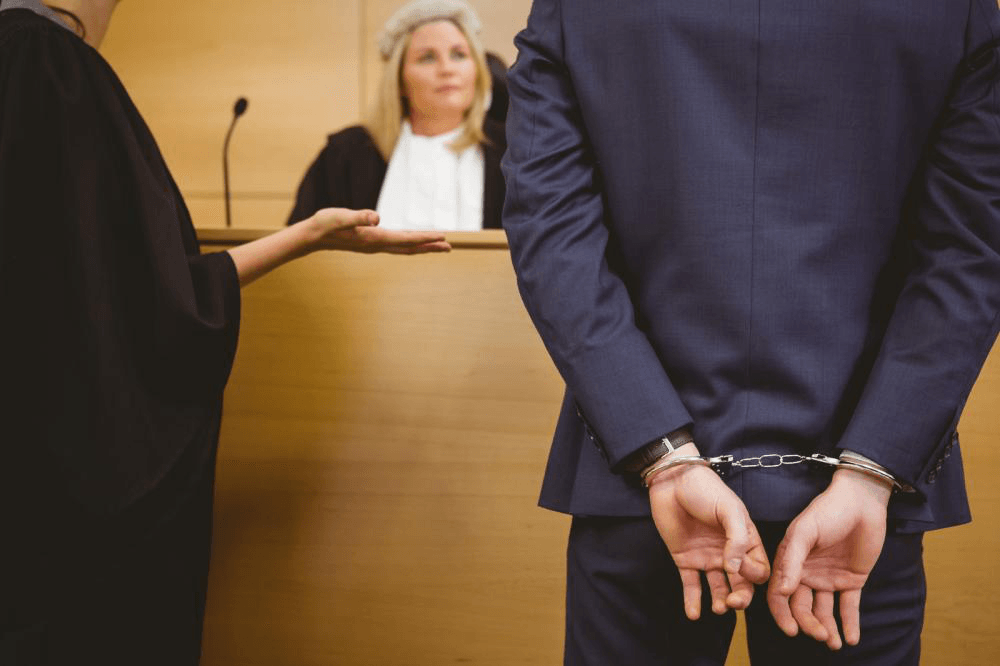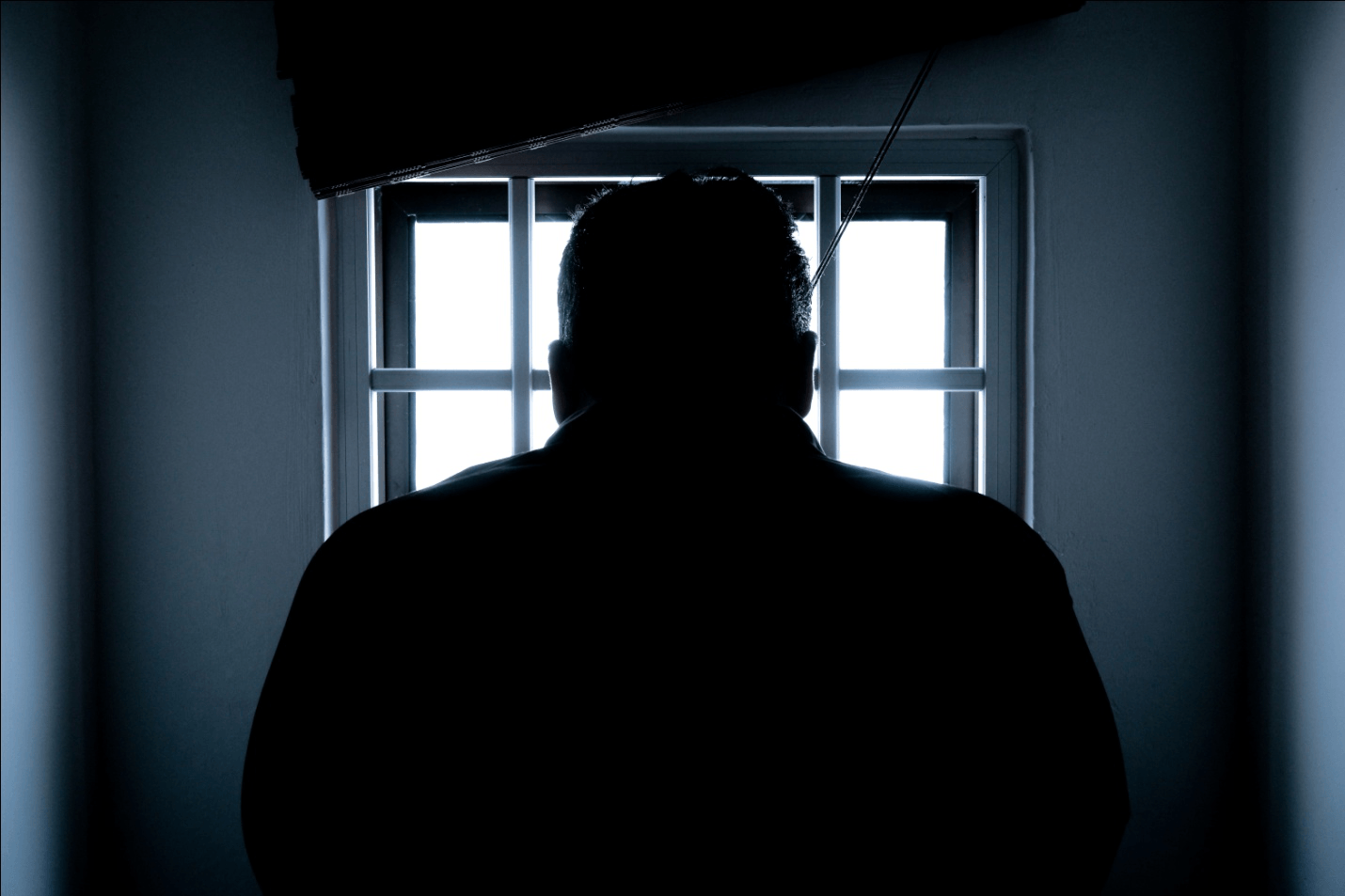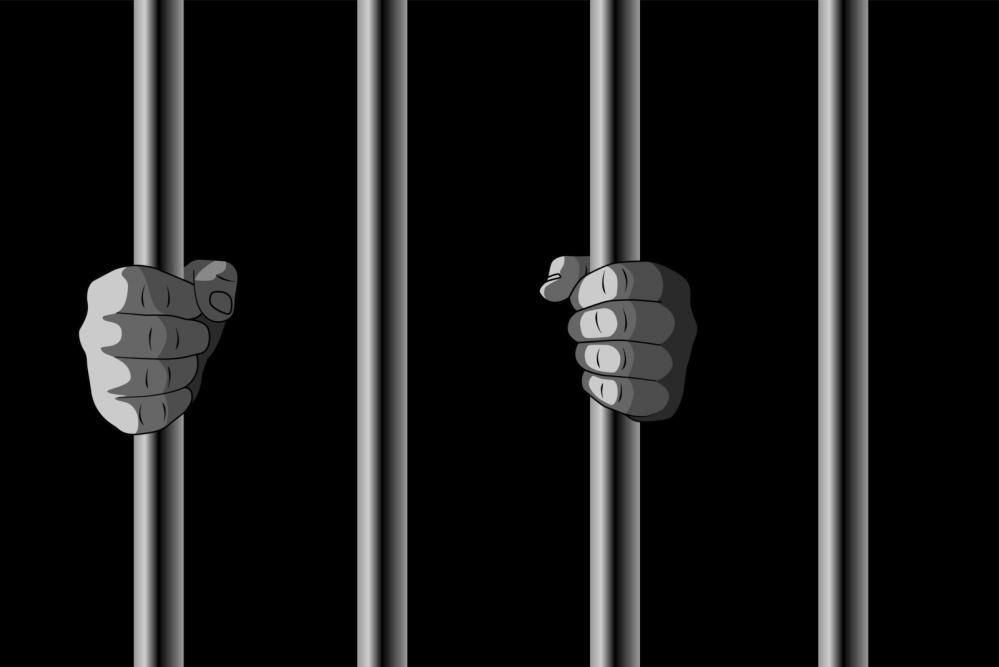What To Do When You’ve Been Wrongfully Accused
Roy Roy • September 12, 2019

Canada’s record of wrongful convictions
may have improved over the years, but false accusations are still a frequent occurrence. Being wrongfully charged with a crime can be nerve-wracking and has a severe psychological impact on the accused and their loved ones.
So what can you do if you find yourself in this unfortunate situation?
Maintain Your Silence
You’ve probably heard the line “Anything you say can and will be used against you” several times in films and on television. It’s pretty accurate when it comes to describing how a criminal accusation and arrest plays out.
You know you’re innocent, but if the cops show up at your doorstep, it isn’t the best time to proclaim it. As stressful as the situation may be, you must maintain your silence and keep your composure. Don’t try to explain to the police that you’ve been falsely accused, or make impulsive statements. Your words are of the utmost significance and any inconsistencies within your future statements can be used to discredit you later.
Some people make the mistake of reaching out to the media after an accusation is made against them. It’s tempting to explain your side of the story and prove your innocence to an audience, but this may do you more harm than good. Refrain from speaking about the charges until you’ve consulted a lawyer for your case.
Stay Away From the Accuser
Another thing you need to do is keep your distance from the person or party who accused you. This is often trickier than it sounds, as it’s tempting to confront the accuser and talk it out. In fact, you may even think that by contacting them you can resolve the conflict peacefully and convince them to drop the charges.
However, this is an extremely risky thing to do and will only complicate your situation. Your meeting with the accuser may be used against you by the prosecutor, making you appear guilty. You may also be charged for intimidation tactics.
Get Legal Representation
Don’t hesitate to get the best criminal appeal lawyer
for your case. They can guide you about the court proceedings and handle your case. A conviction appeal lawyer
can also assist you with having your conviction overturned or getting a new trial.
A false accusation can have severe consequences on your life. The last thing you want is to be heavily fined or sent to jail for a crime you did not commit. This is why you should act fast and hire the best criminal appeal lawyer for your case as quickly as you can.
Get in touch with the Toronto-renowned conviction appeal lawyer Brian Snell today and secure your case!
A false accusation can have severe consequences on your life. The last thing you want is to be heavily fined or sent to jail for a crime you did not commit. This is why you should act fast and hire the best criminal appeal lawyer for your case as quickly as you can.
Get in touch with the Toronto-renowned conviction appeal lawyer Brian Snell today and secure your case!

When the criminal legal system convicts innocent people, it doesn’t serve justice, but instead, it just creates more victims while the perpetrator remains free—potentially endangering the society. As a result of being wrongfully ripped from their families and homes, exonerees experience a range of difficulties that exacerbate their mental health problems. They struggle to reclaim normality, reintegrate into society, and establish a stable existence. Grappling with feelings of helplessness, devastation, fear, and depression, the exonerees return to their homes only to face employment discrimination, poverty, social discrimination, and broken relationships. Not only does wrongful conviction change the life of the exonerees, but the damaging effects reverberate in the lives of original victims and their family members when they see people released after serving time for crimes they didn’t commit. Psychological Effects of Wrongful Convictions Psychiatric assessments of individuals who suffered wrongful imprisonment showed that they endured personality change, psychological suffering, and post-traumatic stress disorder (PTSD). They also suffer from adjustment difficulties, feelings of chronic isolation and estrangement and feelings of loss. In addition to the traumatic stress responses, experts found that some exonerees become victims of substance abuse or dependence. Employment Issues Exonerees claim that employment is their most dire need when readjusting to society. Exonerees don’t have the legal right to ask their former employers to hire them back, and they have to answer “yes” when asked if they have a conviction or arrest record. Not only does this diminish their prospects for securing a job, but it also further exacerbates their existing psychological problems. Helping the Exonerated Needless to say, exonerees require a wide range of supportive services to cope with the challenges of reintegration. This includes housing, employment, education, transportation, mental and physical health care, and public benefits. In Canada, there’s no entitlement to compensation for a wrongful conviction. In other words, the exonerated face the worst of both worlds—the stigma of being arrested without any support services available to those who served time. Making An Appeal The good news is that Canada’s criminal court systems offer a wide range of appeal rights that assist the overturning of wrongful convictions. The accused have the right to appeal on the basis of an error of law, an unreasonable conviction, or miscarriage of justice. With the right criminal appeal lawyer by your side, you can improve your chances of having your case heard fairly in a new trial. A leading lawyer, like Brian Snell, who’s an expert at identifying appeal cases and presenting your case persuasively to the Court, can file a Notice of Appeal on your behalf. Appeals are time-sensitive, so you need to get started immediately. Get in touch with his representatives today in Toronto, Ontario, for more information!

So, you’ve been convicted in a criminal case by the trial court and you’ve decided to appeal the verdict. What happens next? Well, your first step should be selecting and engaging an appellate lawyer. Choosing the right lawyer and forging a successful relationship with them often involves considerations that are unique to appellate practice—an area of litigation that is built upon a distinct set of strategic, analytical, oral advocacy, and writing skills as well a specific base of procedural knowledge. This blog post will provide some valuable tips on selecting the right appellate attorney. Hire an Appeals Specialist The first, and by far the most important, part of the selection process is to look for an attorney that specializes in criminal appeals. While this may appear redundant, it really isn’t. Many people make the grave mistake of assuming that their trial attorney is the best lawyer for handling their appeal. The fact of the matter is that trials and appeals require a very different set of legal skills and have a different type of judicial forum. The time at which you hire an appellate attorney can also potentially have a significant bearing on the success of the appeal. It’s recommended that you engage an appellate practitioner to work with trail counsel while the case is still in trial court. This allows your appellate attorney to identify potential grounds for appeal as early as possible and, in appropriate cases, bring an application for bail pending appeal as quickly as possible. Identify the Most Appropriate Qualifications for a Particular Appeal There’s a wide variety of factors to consider when choosing an appellate counsel. The most important one is experience. How many appeals has the appellate lawyer argued? Does he or she focus on appeals, or is their practice split with trial work or other areas of law? Due Diligence is Necessary When it comes to selecting an appellate counsel for a particular case, choosing someone on a recommendation or just by reputation alone is extremely inadvisable. Instead, you should conduct the search for an appeals attorney like an actual job interview and perform due diligence on the candidates. Brian Snell is one of Ontario’s leading criminal appeals lawyers and has argued over a hundred case appeals in his illustrious career. If you’re looking for an experienced appellate counsel to help you structure a successful appeal, get in touch with us online or by calling 416-915-4206 .

After a loss at a trial, the first question people typically ask is, “can we appeal?” Well, answering that question necessitates careful, detailed analysis of the case’s facts and relevant legalities, as well as an understanding and appreciation of the procedural requirements for bringing the appeal in the right jurisdiction. Having knowledge of the particular appellate court and its judges also has a bearing on the likelihood of a successful appeal. While you may be tempted to just let your trial lawyer prepare your appeal, there’s a multitude of reasons to hire an appellate lawyer for handling your appeal. Here are three of them. An Appellate Attorney Brings a Different Skill Set to the Table There are many attributes that are shared by appellate attorneys and trial practitioners. For instance, they’re both detail-oriented, inquisitive, organized, and are good communicators and problem solvers. However, with that being said, the skills required to succeed with an appeal are quite different from the ones needed for a trial. Trials are mostly about introducing evidence, questioning witnesses, and arguing the case to a judge or the jury. A trial lawyer needs to be adept at cross-examining witnesses and making complex facts seem simple—especially if they’re trying to convince a lay jury. Preparing an appeal, on the other hand, involves a completely different process. The trial record must be reviewed thoroughly and analyzed for errors. An appellate attorney’s primary job is to create a detailed factum which involves preparing a persuasive legal argument that’s adequately supported by case law and the regulatory framework. The majority of appeals are lost or won “on the factum”. Therefore, first and foremost, an appellate attorney must be a skilled writer. Furthermore, they should also be skilled at researching both substantive and procedural legal principles and exploring creative analogies. An Appellate Attorney Brings a Fresh Perspective to a Case A trial lawyer’s approach to a case involves developing and communicating a core theory to the fact finder. While this does make for a strong case, it invariably leads to other issues or potential theories being overlooked or given little attention. This can create problems for a trial lawyer preparing an appeal, because the fact-finder handling the case may be more interested in a theory that’s completely different to the one that was relied upon during trial. The trial attorney may not be prepared to look at the case from a different angle. Appellate lawyers, on the other hand, bring an entirely fresh perspective to a case. While they’re scanning the trial record for potential issues or errors to appeal, they’re likely to see things that the trial attorney missed because they were too vested in the case. An Appellate Attorney is Knowledgeable on Appellate Law and Familiar with Appellate Courts To file an appeal, an attorney must be familiar with the local rules of appellate procedure. Appellate filings have specific requirements and important deadlines which, if missed, can be fatal to an appeal. Experienced appellate practitioners have the knowledge to navigate through this often-lengthy process expertly. They can guide you through the various steps of the appeals process and answer any questions you may have along the way. If you’ve been wrongfully convicted in Toronto, Ontario and are seeking expert legal help for a criminal appeal, you’re in the right place! One of Toronto’s leading criminal appeals lawyers , Brian Snell has argued over a hundred case appeals in his illustrious career. He has the expertise and the knowledge to help you structure a successful appeal. Get in touch with our representatives online, or by calling 416-915-4206 .

Imagine being 16 and being wrongfully convicted and sent to prison for manslaughter. This is exactly what happened with David Milgaard in 1969 when he was accused of sex-slaying a nurse and given a life sentence. What followed was decades of struggle and persistence to free his name in what’s known to be one of the most notorious cases of wrongful conviction in Canadian history. The Story As It Was On January 31st, 1969, the then-teenage Milgaard went on a road trip to Vancouver with his friends. They travelled from Regina to Saskatoon to pick up another one of their friends and then set off from Calgary. On the same day, 22-year-old nursing assistant Gail Miller’s body was discovered in Saskatoon. She had been raped and brutally stabbed to death. A little over a month later, the friend Milgaard had stayed with at Regina, Albert Cadrain, informed the police that Milgaard had been acting suspiciously during the stay. This led to Milgaard becoming the prime suspect in the investigation. The police were further convinced of his guilt when they brought in his friends for questioning the second time who changed their statements to accuse Milgaard. Consequently, Milgaard was arrested for a crime he had not committed. The false testimonies presented by his friends weakened his case and robbed him of a verifiable alibi. Despite him denying the accusations, he was found guilty and given a life sentence in 1970. The Trial and Tribulations of David Milgaard In 1971, Milgaard’s appeal to the Saskatchewan Court of Appeal was denied. Later that year, he was also refused leave to appeal by the Supreme Court of Canada. After spending several years in jail, his application to the Minister of Justice was also dismissed in 1988. However, by this time evidence had emerged that a convicted murderer and rapist Larry Fisher may have been the real culprit. Milgaard filed a second application in 1991 and the Supreme Court ordered a new trial. Here, it was finally uncovered that Larry Fisher had been renting Albert Cadrain’s apartment in 1969 and was responsible for the murder. It was also proven that Albert was a police informant and had received a reward for his earlier testimony. Walking Out a Free Man After spending 23 years in jail, David Milgaard was finally released of the criminal charges in 1992 and walked out a free man. 5 years later, new DNA evidence further proved his innocence and wrongful conviction. He was given a compensation of $10 million upon exoneration. David Milgaard’s case is one of the biggest examples of the justice system failing us. However, we have since come a long way and have advanced technology and experienced criminal appeal lawyers to prevent innocent individuals from being wrongfully punished. Brian Snell is a conviction appeal lawyer who can help you with such a case. Get in touch with him now!

The number of wrongful convictions in Canada has gone down significantly over the past several years. However, many individuals still get convicted for crimes they haven’t committed and have to live with the consequences. It all starts when a person is listed as a suspect in a criminal investigation. So, what do you need to be aware of if you find yourself in such a situation? Your Chances of Going to Prison Are High If only one could avoid prison by simply telling the truth and denying all charges (and rightly so), there never would be any wrongful convictions. Unfortunately, that’s wishful thinking. The fact of the matter is that your innocence alone won’t stop the authorities from sending you to jail. You may think that you have nothing to fear because you weren’t involved in the crime in any way, but the bitter truth is that innocent people do end up being convicted. Just think of the case of David Milgaard who served 23 years of prison because of false testimonies made against him! As a suspect in a criminal investigation, your chances of being wrongfully convicted and sentenced to jail are quite high. This is because facts are often elusive and can be misinterpreted as well as misrepresented. In fact, a person can be sentenced to prison due to a number of reasons pertaining to the faults in the legal system. Never take such a situation lightly. If you’re being considered as a suspect in an investigation, you must be extra cautious. The Police May Try To Pressure You When you’re a suspect, the police are not your friends. In fact, they may go to great lengths to lie or manipulate you so that you end up “confessing” or saying things that may be used against you. While cooperation with the police is necessary, don’t fall for their intimidation tactics. You’ll probably get to hear a bunch of things from them meant to pressure you into issuing a statement. For instance, they may tell you that they have photographic evidence of you being at a certain place or have spoken to eyewitnesses, even if that is not true. This can trick you into saying things which they may then manipulate or use in their favor. You want to avoid this at all costs. In fact, know your rights and avoid speaking to the police altogether without the presence of your lawyer. You Need To Hire an Experienced Lawyer The bigger the accusation, the bigger the need to hire an experienced criminal attorney. Remember, you want to avoid going to jail for a crime you haven’t even committed and want to do all you can to prevent being convicted. If things go sour and you end up getting arrested or losing your trial, the consequences can be even more severe. This is where Toronto-based conviction appeal lawyer Brian Snell can help you. He’ll help you file for an appeal and make a convincing argument for your case to achieve the desired positive outcome. Get in touch with him now!

What’s worse than being sentenced to imprisonment for several years? Being sentenced for a crime you didn’t even commit! Wrongful convictions not only result in a miscarriage of justice but also make the lives of the convicted extremely difficult. Here is how: Psychological & Social Impacts A person who has been wrongfully convicted experiences a number of drawbacks when it comes to their mental health and sociability. Research has shown that individuals who are imprisoned for crimes they didn’t commit are at a high risk of depression and self-harm. Not only that but they are also likely to have suicidal ideations. Inmates convicted wrongfully may also feel like they’re losing their minds, especially if the sentence issued is an extensive one. Their psychological well-being ties in closely with their social well-being. Individuals convicted wrongfully are likely to experience social withdrawal and isolation. They may avoid maintaining contact with their families, have minimal communication with other inmates, and refrain from participating in activities. Their social isolation can further trigger their depression and suicidal tendencies, taking a devastating toll on their mental health. Loss of Family Ties As mentioned above, the wrongfully convicted may have limited communication with their family members while they’re in prison. This may be because of their will or because of the family’s choice to not visit. In other cases, they may not be allowed to meet their loved ones. This results in the deterioration or even a complete loss of family ties. Even after they’ve been exonerated, they may find it exceedingly difficult to reconnect with their families. Having served a long time in prison, they return home only to discover they can no longer connect with their loved ones the same way. Not only have their personalities changed over the course of time, but also their capacity to feel things a certain way. Many find that their families no longer wish to associate with them or have long since cut off ties. The family members of the person who has been wrongfully convicted also go through their share of troubles. They have to live with the consequences of the conviction and are deprived of the emotional support they’d have otherwise received from their loved one. If the convicted family member is exonerated and returns home, they struggle to process the emotional and personality changes at display. Long-Term Effects Exoneration comes at a cost. Even if the wrongfully convicted person is released from prison and has all criminal charges dropped against them, they still have to live with the long-term effects of the conviction. Most dominantly, exonerees struggle to regain financial stability and social status. They may find it difficult to find a job which severely impacts their income. In addition to that, they may continue to face social exclusion and even aggression from society at large. With an experienced criminal appeal attorney by your side, you can help your loved one fight against a wrongful convictio n . Brian Snell is a conviction appeal lawyer in Toronto who can help you with this. Get in touch with him now!

Losing at your trial can seem like it’s the end of the world. Once the sentence is issued and you’re convicted of a crime, things naturally tend to look bleak. However, this doesn’t mean all is lost! You can very well find yourself free of charges a few months down the road if you choose to appeal. Here’s what you should do in these circumstances. Hire a Lawyer First things first: you need to reach out to an experienced and skilled attorney who can help you with your case. Many times, individuals tend to lose a case in court because of the lack of professional legal counselling. Even if they have a substantial claim, without a professional criminal appeal attorney to help strengthen their case, they can end up going to jail after losing a trial. This is why it’s imperative that you reach out to an experienced appeal lawyer immediately after losing the trial. They’ll help you pick up the pieces and significantly improve your chances of getting a positive final outcome. Act Fast As per the Canadian law, you have 30 days to challenge the court’s decision after a trial. This period begins from the date of the sentence. While you may be able to get an extension in rare circumstances, it’s best to act fast and utilize your time efficiently. Failure to file for a Notice of Appeal within the 30-day time period can result in you losing your right to appeal. Your appeal lawyer will help you draft your application and file it as per the requirements. Prepare For the Appeal After having consulted with your lawyer and having filed the Notice of Appeal, your appeal lawyer will gather all your documents needed for the appeal. These would include the transcripts and exhibits from your trial as well as other relevant documents. Next, your appeal lawyer will write a summary of the trial proceedings (i.e., the factum) along with all the arguments to be made during the session. You want to be as persuasive as you can to make your case stronger. Your appeal lawyer will help you back your arguments using case law and make your case more convincing for the courts. Furthermore, they’ll also help in presenting your case orally before the judges. This is the final step of the appeal process. While appeals don’t typically involve unearthing new evidence, this may be allowed in some cases. If you have fresh evidence that can help your appeal, then you may also use that during the process. An appeal is a second chance for you to get the freedom you deserve, and you want an expert to handle your case. Brian Snell is a conviction appeal lawyer who can help you with your appeal after having lost a trial. Get in touch with him now!

In part one of this blog series, we looked at how factors such as plea bargaining and false testimonies can affect convictions. Here, we’ll be discussing some more causes of why an innocent person often gets wrongfully accused and punished for a crime they did not commit. Tunnel Vision When the investigative authority becomes fixated on one particular suspect, they tend to lose focus from all other individuals who may have been involved in the crime. This is known as tunnel vision. An example of tunnel vision is when the prosecution or the police attempt to look for evidence that matches their existing theory. This contradicts the practice of formulating a theory based on the evidence already at hand. What happens then is that they become too focused on reaching a specific conclusion. This can result in a person being wrongfully convicted of a crime. Tunnel vision can also be linked with professional misconduct, i.e. how a particular case is handled by the relevant authorities, as discussed in the previous blog. Identification Error by Eyewitnesses There are several reasons why eyewitness testimonies are deemed to be unreliable. Everything from their distance from the site of crime or the person accused, the field of vision, lighting and time of the day, and their own influx of emotions can influence their testimony. A person may be convinced that they saw the accused do something at a given time, only to realize much later that they may have been mistaken. Add to this the cross-race effect on a person’s memory. Research has shown that people are more likely to identify and recognize others from their own race, which then influences how they remember an event. This can then lead to eyewitness identification error, which ultimately results in a wrongful conviction. Systemic Racism & Discrimination Yep, systematic racism, classism, and gender biases are very much part of the judicial problem. Research has shown that all three of these factors contribute to wrongful convictions not just in Canada, but also in other parts of the world. In fact, there have been several cases of exoneration in which DNA evidence has eventually helped clear the name of individuals part of the racial minority. One example is of Donald Marshall, Jr. A Mi’kmaq man, he was from the indigenous community in Nova Scotia. Not only was he wrongfully convicted of murder and spent more than a decade in jail, but it was also discovered later that the main reason for this judicial decision was systematic racism. Have you been wrongfully charged with a crime? Toronto-based conviction appeal lawyer Brian Snell can help your case. Get in touch with him now!

A number of factors contribute to a person being wrongfully convicted. Without an expert criminal appeal lawyer to help their case, this can then lead to long periods of jail time. In this two-part blog series, we’ll explore some of the most common causes of an accused being charged falsely for a crime. Plea Bargaining & Deals As surprising as it may sound, false guilty pleas are quite common. These refer to when the accused bargains with the judicial system, pleading guilty despite being innocent. We know what you’re thinking. Why would somebody do that? What good could possibly come out of pleading guilty to a crime you did not commit? In many cases, plea bargaining serves as a way to end a trial instead of letting it continue for years. An innocent individual may plead guilty falsely to avoid facing even more severe consequences if they don’t. By taking a plea deal, they are then convicted with a shortened sentence or of a less severe crime. This is especially likely to happen if the accused believes that the prosecution has built a convincing and strong case against them that will get them convicted. Take, for instance, the case of Maria Shepherd. In 1992, she was convicted of murdering her step-daughter after pleading guilty falsely. This was done to reduce her already impending sentence based on the false evidence provided by the (now disgraced) ex-pathologist Charles Smith. Testimonies from Jailhouse Informants As we learned from the Guy Paul Morin case, incorrect testimony provided by jailhouse informants can lead to a wrongful conviction. This happens when “informants” are given an incentive to testify against the accused. This deal made between the prosecution and the informants results in the accused being charged with a crime they did not commit. In Morin’s case, two jailhouse informants provided false testimony in exchange for personal incentives. Morin was charged with sexual assault and murder of his nine-year-old neighbour, and given a life sentence. It wasn’t until 11 years later that he was exonerated after evidence from DNA testing found him innocent. Professional Misconduct This happens when there are procedural issues in terms of the way a particular case is tried. It includes the work of the police, Crown attorneys, as well as forensic experts involved in the case. For instance, the prosecution can engage in professional misconduct by withholding important evidence from the defence. Similarly, in high profile cases, the police are under immense pressure from the media and the public. This can lead to errors in judgement, which can then cause an innocent person to be convicted. Have you been wrongfully charged with a crime? Toronto-based conviction appeal lawyer Brian Snell can help your case. Get in touch with him now!

One false accusation can change a person’s entire life. Not only do they find the world turned against them, but they also lose out on several years of their lives as they try and hope to be exonerated. There have been quite a few cases of wrongful convictions in the past. Here are three of the most scandalous criminal cases in Canadian history. David Milgaard David Milgaard’s conviction in 1969 is perhaps one of the most famous cases of wrongful accusation and punishment in Canadian history. He was charged with the murder of Gail Miller. The victim was a 22-year-old nursing assistant in Saskatoon who was raped and then stabbed to death. In January 1970, Milgaard was given a life sentence in prison. The appeals made by him to the Supreme Court of Canada and Saskatchewan Court of Appeal were denied. However, his case was pursued by his mother who played an active role in exonerating him. When in 1979 Milgaard was denied parole, she pushed for police malpractice involved in her son’s case. She also helped uncover proof that false testimony was made. Despite his mother’s persistence and continuous appeals, Milgaard stayed in prison for more than 20 years. It wasn’t until 1992 that he was released from jail. Five years later, he was exonerated after new DNA evidence was discovered. Milgaard was compensated with $10 million. Guy Paul Morin Guy Paul Morin was charged with the murder of nine-year-old Christine Jessop. The victim, who was Morin’s next-door neighbour, went missing in the October of 1984 in her hometown of Queensville, Ontario. Two months later, her body was discovered in a farmer’s field nearby. The autopsy revealed that she had been sexually assaulted before being brutally murdered. Morin was arrested for this heinous act. He was acquitted in 1986, but after a successful appeal by the Crown, the Ontario Court of Appeal ordered a new trial for his case. In this second trial, the court convicted Morin of the crime, and in 1992 he was given a life sentence. Guy Paul Morin was proven to be innocent in 1995 after evidence gathered from new DNA testing excluded him as the killer. He was finally exonerated, given a public apology, and compensation of $1.25 million. Donald Marshall, Jr. After Sandy Seale was murdered in 1971, his friend Donald Marshall, Jr. was falsely convicted of the crime. He was given a life sentence at the age of 17, and spent the next decade in prison. The RCMP reviewed his case in 1982. He was then cleared by the Nova Scotia Court of Appeal in 1983. An inquiry was later held to investigate the wrongful conviction further, which led to changes in the rules of evidence and disclosure. Marshall was given $1,500,000 as compensation for the wrongful conviction. Has a loved one been wrongfully convicted of a crime they did not commit? There’s no time to waste! Get in touch with Toronto renowned conviction appeal lawyer Brian Snell at your earliest to prevent them from being wrongfully punished.
